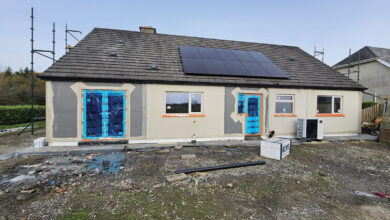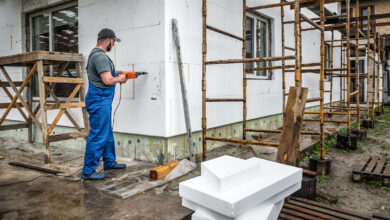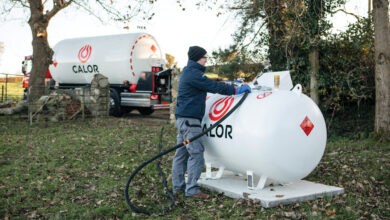Europe’s heat pump revolution

Paul Kenny, Director General of the European Heat Pump Association, talks to eolas Magazine about the role of heat pumps in Europe’s energy future, emphasising Ireland’s progress and the broader European landscape.
Europe remains heavily dependent on fossil fuel imports, which are costly, insecure, and undermine economic competitiveness. “Energy is the area where Europe struggles in terms of competitiveness,” Kenny states, highlighting the urgent need for decarbonisation and the central role of heat pumps in this transition.
Stressing that through the Fit for 55 package, Europe’s heat decarbonisation ambitions are steadfast, Kenny draws attention to the geopolitical dimension of energy, particularly the influence of misinformation campaigns targeting climate policies and heat pumps. “There is a concerted disinformation effort, particularly in Poland, aimed at undermining the deployment of heat pumps,” he notes.
Europe’s strategic heat pump advantage
Unlike solar photovoltaics (PV) and electric vehicles, where Europe has lost its competitive edge to China, Kenny asserts that Europe remains a leader in heat pump technology.
“We maintain a stronghold in industrial, domestic, and commercial applications. Even Asian manufacturers produce for the European market within Europe,” he explains, further claiming: “This presents a strategic opportunity that must be safeguarded.”
The Renewable Energy Directive sets a 42 per cent target for renewable energy, up from the current rate of between 14 per cent and 15 per cent. Kenny says that “the only viable pathway to achieving this is through the widespread deployment of heat pumps and renewable electricity”.
Regulatory and market challenges
Observing that “several regulatory barriers hinder the rapid expansion of heat pumps across Europe,” Kenny says that “in some countries, planning permissions, noise assessments, and heat loss assessments create unnecessary delays”. “Harmonising and streamlining these processes”, he says, will be “critical to accelerating adoption”.
Kenny also emphasises the impending shift in refrigerants from synthetic gases to propane-based alternatives, a transition mandated by EU law by 2027. “This will increase material costs by approximately 30 per cent, which will inevitably impact pricing,” he says, further noting that policymakers “must account for these economic shifts to ensure sustained market growth”.
“Smart integration of heat pumps with dynamic electricity pricing could reduce energy costs by between 30 per cent and 40 per cent, mirroring successful models in Sweden.”
Ireland’s leadership in energy policy
Kenny highlights Ireland’s progress in renewable energy, citing significant advancements in grid infrastructure, battery storage, and interconnection. “The commissioning of new interconnectors in the coming years will reduce reliance on gas for electricity generation and lower electricity prices,” he says.
The State’s commitment to flexibility in its climate plan is also noted by Kenny as a “competitive advantage”. “Smart integration of heat pumps with dynamic electricity pricing could reduce energy costs by between 30 per cent and 40 per cent, mirroring successful models in Sweden,” Kenny states.
Scaling up development
Another critical factor for success cited by Kenny is installer capacity. “In markets with high heat pump adoption, installation margins are lower, making the technology more accessible,” he explains. “In contrast, in Germany, profit margins on installations remain excessively high, limiting widespread uptake despite generous subsidies.”
Public awareness and regulatory stability also play “crucial roles”. “In Sweden, younger generations have no concept of gas boilers; they only know heat pumps,” Kenny says, further asserting that replicating this societal shift across Europe requires “consistent policies and investment in consumer education”.
Policy imperatives
Kenny calls for decisive policy interventions to sustain the momentum in heat pump deployment:
- Lowering VAT on heat pumps: “Ireland was restricted from reducing VAT below 9 per cent due to EU law, but forthcoming directives will enable reductions to 0 per cent.”
- Expanding installer training programs: “Every installer must be equipped to recommend and install heat pumps as a default solution.”
- Enhancing grid integration: “Ensuring that heat pumps can dynamically respond to electricity pricing will maximise cost efficiency.”
Kenny reaffirms that the State is on the right trajectory but, cautions that government “must remain committed to investment and strategic policymaking”.
“Ireland’s energy policies are widely regarded as a model within Europe,” he asserts.
“While ambitious targets may not be fully met, structured implementation will ensure continued progress toward a sustainable and secure energy future,” Kenny concludes.





